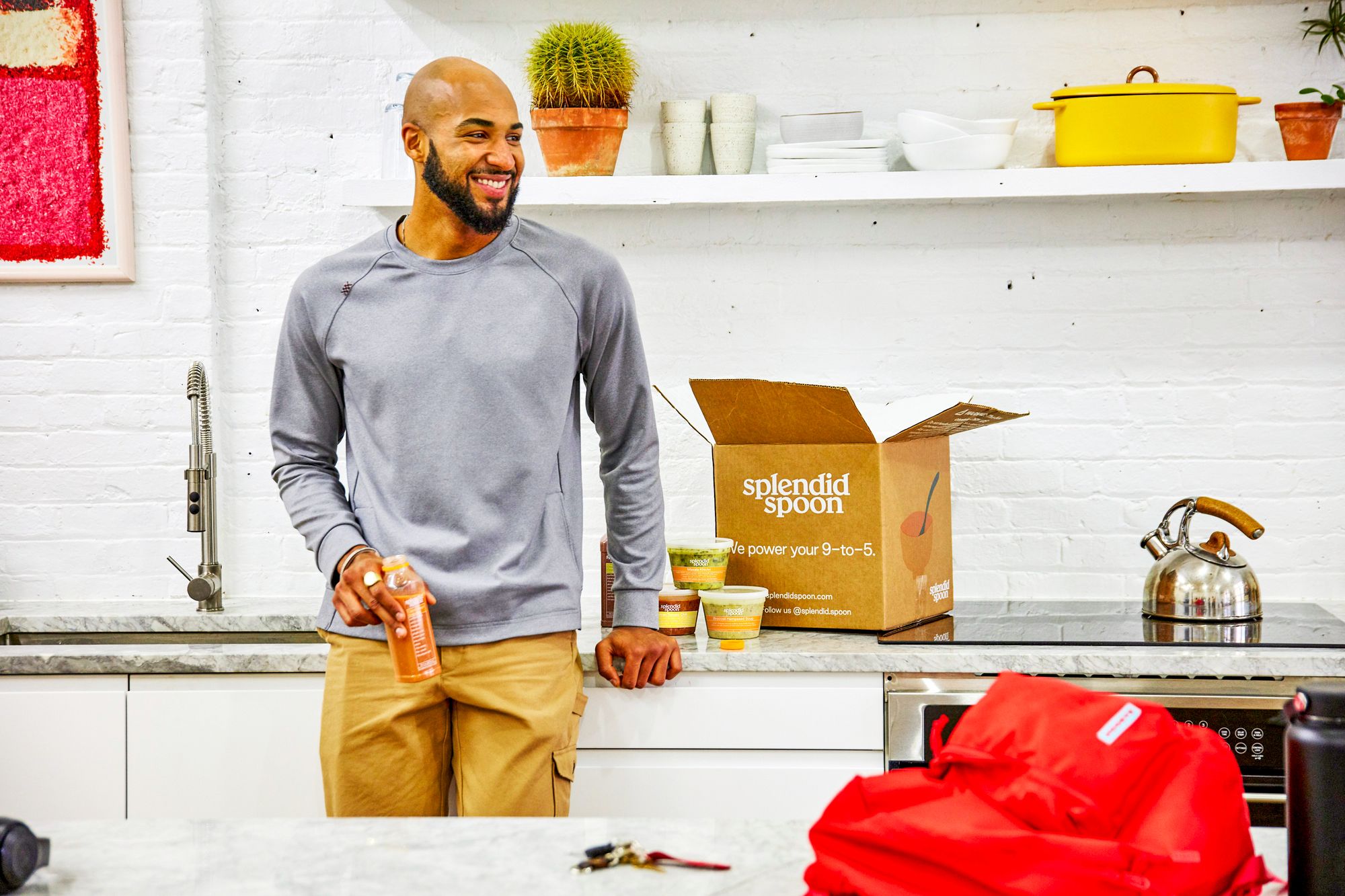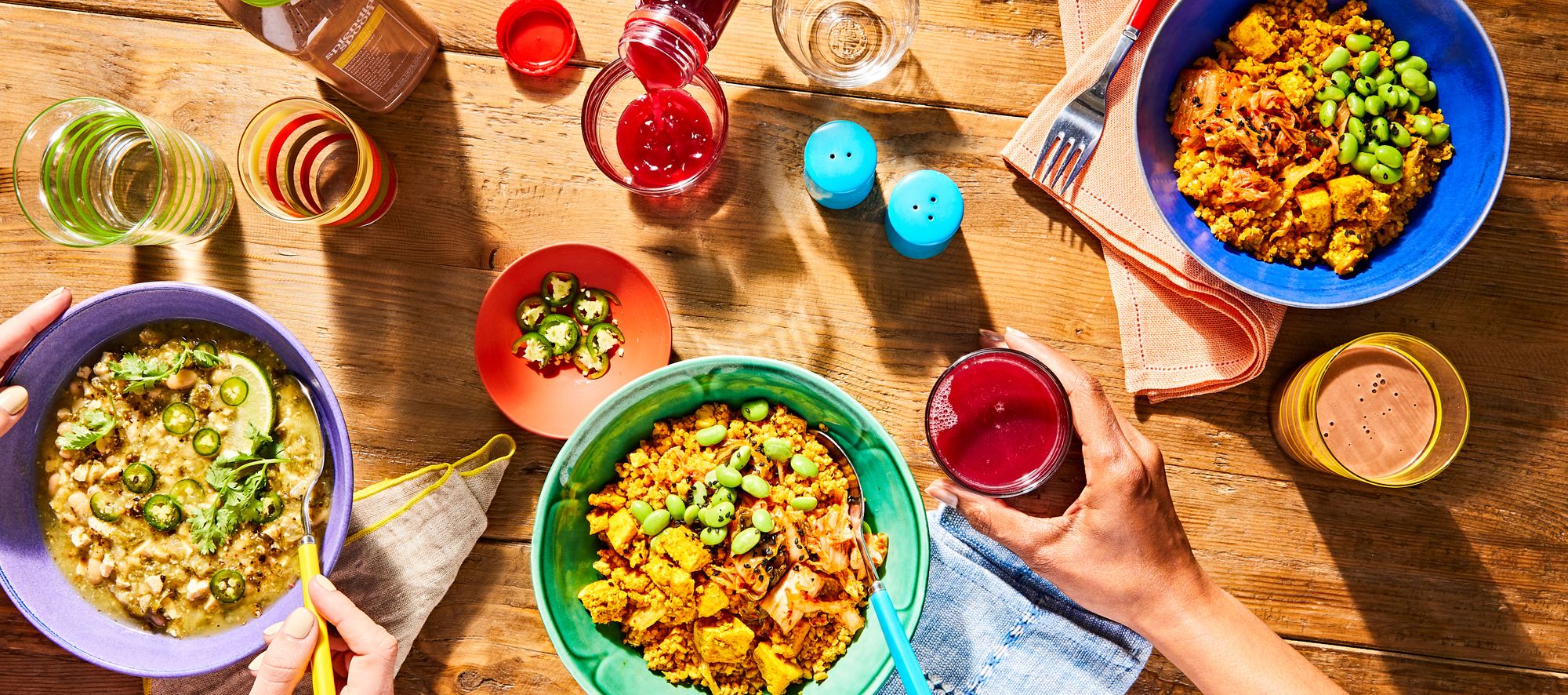
Hailed as the building blocks of life, protein can start to feel more like an unscalable mountain of disinformation, so we’re going to clear up the facts and bust some outdated myths about plant-based protein.
If you’ve started eating plant-based, you’ve probably been asked the question, “Where do you get your protein?” by concerned friends, family members and strangers in the produce aisle. What people know about plant protein is a murky mixture of fiction and fact: most of us are taught it’s the most important nutrient (it is) and that meat and dairy are the best sources (they aren’t).
Hailed as the building blocks of life, protein can start to feel more like an unscalable mountain of disinformation, so we’re going to clear up the facts and bust some outdated myths about plant-based protein.
Myth 1: A plant-based diet doesn’t give you enough protein.
If you follow a Western diet, the truth is you probably eat too much protein. Only 10 to 35 percent of your calories should come from it, which is less than the calories you need from carbs and fat. When in doubt, remember the 7:20 ratio. 7 grams of protein for every 20 lbs of body weight, more or less depending on how active you are. For most people, that looks like 50-70 grams of protein per day. A single cup of cooked lentils has nearly 18 grams of protein and 8 ounces of tempeh contain 40 grams. But you don’t have to just eat beans all day. Diversifying your diet with different vegetables, seeds, nuts, grains and tofu makes it easy to get all of the protein your body needs.
Myth 2: Meat is the only complete protein.
Let’s think of protein as a package. Meat contains all 9 essential amino acids that your body doesn’t make on its own, making it an easy complete protein. But it also comes with unhealthy levels of saturated fat, cholesterol and sodium. Plus, most modern animal agriculture practices aren’t kind to animals and emit a lot of greenhouse gases that contribute to our ongoing climate crisis. Quinoa, buckwheat, tofu and tempeh are lesser-known complete proteins and (unlike meat) they come gift wrapped with good-for-you fiber, fat, calcium, vitamins and minerals without any of the bad stuff, according to this helpful protein break-down from Harvard’s School of Public Health.
Check out our NEW high protein meals, including a Strawberry Chocolate Smoothie and Kimchi Fried Quinoa Grain Bowl! High protein meals, delivered.

Myth 3: Soy messes with your hormone levels.
Repeat after me, “Soy is safe.” In addition to being a perfect protein, soybeans and their byproducts provide you with iron, fiber, calcium, B vitamins, zinc and more. Studies show that replacing animal protein with soy protein can reduce bad cholesterol and triglycerides (which have been linked to heart disease) plus help control blood sugar levels and reduce body weight. Much of the fear about soy is a result of pseudoscience, anti-Asian xenophobia and excessive consumption of concentrated soy products like protein powders in studies that feed nonhumans, like rats, quantities that exceed any normal human serving. While soy has relatively low amounts of estrogen, the hormones and steroids found in dairy should be far more concerning.
Have you tried our new Green Tomatillo Chili? This bowl packs a punch with 20 grams of plant-based protein from tofu and navy beans. Click here to add it to your order!
Myth 4: Vegetables are rabbit food.
Eating muscle doesn’t give you muscle any more than drinking gasoline makes you fast, but there’s a widespread stereotype that equates meat with strength and masculinity, and eating vegetables with weakness and femininity. It’s completely false. The strongest animals in the world eat plants, from the herbivorous rhinoceros beetle who can deadlift 850x its own weight to actual rhinos whose solid 3,000-5,000 lbs are composed of leaves, grass and fruit. Today, some of the world’s best athletes are vegans and vegetarians who use plants to fuel their success like tennis champions Venus and Serena Williams (the latter of whom has been named the greatest athlete of all time), ultramarathon runner Scott Jurek, and U.S. women’s soccer player Alex Morgan.
Myth 5: Buying plant-based food is expensive.
Beans, greens and whole grains are hands-down the cheapest and most nutritionally-dense foods around, pound for pound. Switching to a whole foods + plant-based diet can be done on any budget and one of the most ubiquitous dishes around the world happens to be vegan—shout out to rice and beans! Not every grocery store is created equal but hunting down unprocessed foods in bulk saves a lot of money at the end of each receipt. Many neighborhood farmers markets now accept EBT and offer high quality organic produce at competitive prices.
If you want to try out a plant-based diet but don’t have time to prepare healthy meals day in and day out, Splendid Spoon protein-packed meals are perfect for you. We take the burden out of planning, shopping and cooking.
Our smoothies, soups and bowls make transitioning to a plant-based diet easy thanks to great recipes that pass the test for picky eaters and are loaded with diverse (& delicious!) ingredients to keep you full and energized.
Questions? Reach out to [email protected]
